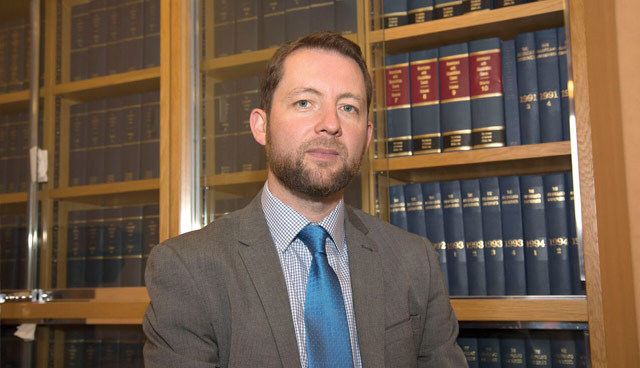Governance questioned on care findings

The recent findings of a “horrific catalogue of inhuman and degrading treatment” at a Belfast care home also served to call in to question the effectiveness of the governance in delivering health and social care services.
In 2017, on the back of complaints from residents’ family members and former employees of Runwood Homes Ltd, (the company which owns and manages Dunmurry Manor), Commissioner for Older People Eddie Lynch launched an investigation into care provided in Dunmurry Manor Care Home and the actions of its owner, the Department of Health, the regulator (RQIA) and four of the five Health and Social Care Trusts that had placed residents in the home.
While much attention was paid to the severity of the care failings for residents of the 76-bed nursing and residential home situated in Dunmurry, which provides care for residents living with dementia, on release of the report in June 2018, it also served to highlight a number of governance failings in the HSC system.
Despite being established in 2011, under The Commissioner for Older People Act (Northern Ireland) 2011, the report into Dunmurry Manor was the first time the office of the Commissioner has used its legal powers to conduct an investigation, despite the power being arguably its most potent.
Although commended for its role in bringing the care failings at the home to light, responsibility for enforcement lies outside the powers of the office. In fact, the Commissioner, without who’s investigation would likely have meant that the public never heard the full extent of the severity of care failings at Dunmurry Manor, holds no enforcement powers at all.
The legal powers of the office are stated on their website:
- Make arrangements for research or educational activities concerning the interests of older people;
- Issue guidance on best practice in relation to any matter concerning the interests of older people;
- Conduct investigations for the purpose of any of her functions;
- Compile and publish information concerning the interests of older people; and
- Provide advice or information on any matter concerning the interests of older people.
Lynch was critical of those that did hold the necessary powers to take action, including the Regulation and Quality Improvement (RQIA), the independent body responsible for monitoring and inspecting the availability and quality of health and social care services in Northern Ireland.
His investigations found that many of the “terrible” incidents occurred during periods of time when the regulator reported the home to be meeting the required standards of care.
“Despite the regulator carrying out 23 inspections in a 39 month period, they did not find the extent of the problems experienced by many residents,” he said.
What ensued was a war of words between the Commissioner and the regulator, with the latter outlining that it did not agree with some of the Commissioner’s conclusions.
In a statement following the release of the Commissioner’s report, the RQIA asserted: “RQIA did find instances where the quality of care was not to the expected standard and worked with the management of the home to support improvement, and follow-up inspections found that care did get better for a period.
“We do not agree this meets the definition of institutional abuse.”
In particular, Olive McLeod, Chief Executive of the RQIA responded to sexual abuse highlighted by the Commissioner by stating to the BBC: “It was patients, or clients, who were living there – clients on clients. It was not staff, it was people who were living in the home. And that is often a symptom you see in people with dementia.”
Adding: “What was reported to us was disinhibited sexual behaviour by both male and female patients and that behaviour can be a symptom of distress that you see in people with dementia.”
Explaining that the behaviour was reported to the safeguarding board and “managed”, she added that while it was distressing for families, particularly of the female patients subjected to it, it “is also a common feature in homes”.
Among those who were critical of whether the RQIA was properly performing its role was former Health Minister Edwin Poots.
The report led to a public apology being issued by the Department of Health over what it described as “unacceptable failings”.
The Commissioner’s report was critical of a number of health bodies, including the Department, around the response to whistleblower complaints and the inspection process.
Permanent Secretary Richard Pengelly convened a summit of senior officials from the Department, HSC trusts and the RQIA to discuss care home provision, following which he outlined a series of measures to enhance standards, restore public confidence and highlight investment plans.
In a statement he said: “In publicly saying sorry to residents and families who were let down, I must acknowledge that words alone are not enough. Action must, and will, be taken to ensure that failings are not repeated.
“The primary responsibility for care and standards in homes run by the independent sector rests, of course, with the care home provider. But Dunmurry Manor must serve as a stark reminder to the HSC system of its important responsibilities.”
One of the main measures outlined by Pengelly was an independent review of actions by the HSC system in relation to care failings at Dunmurry Manor, in addition to the formal HSC response to the Commissioner’s report.
The Commissioner outlined 59 recommendations to authorities with a requirement for them to set out proposals to address them by October 2018, with the view of publishing an annual review of implementation progress.





